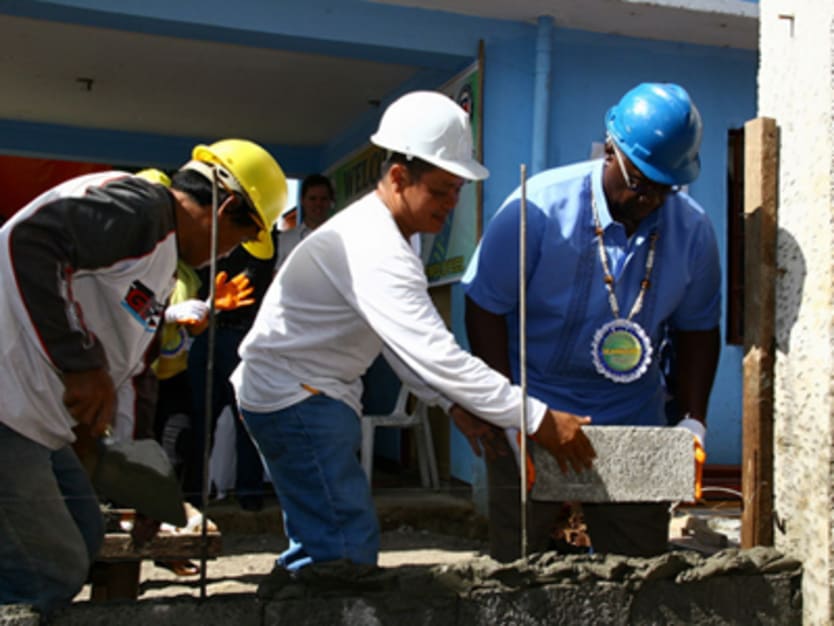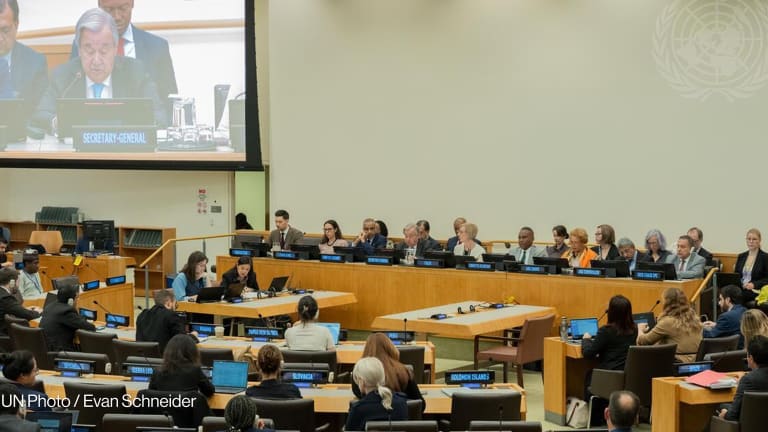
With Congress in recess, U.S. foreign aid advocates are scrambling behind the scenes to ensure a potentially messy September budget fight doesn’t leave critical poverty reduction programs cash-strapped.
Monday’s announcement by Treasury Secretary Jack Lew that the U.S. government will run out of borrowing authority months earlier than expected — by mid-October instead of late November or early December — has given even more urgency to a budget impasse many fear could result in big cuts to some foreign assistance accounts.
A huge gap — $10 billion between the House appropriation committee’s bill and the Obama administration’s budget request — has led most observers to expect Congress will yet again fail to pass an approved budget through both chambers by the end of the fiscal year on Sept. 30.
Instead, insiders expect a short-term continuing resolution to maintain current spending, while negotiations for a longer-term deal continue. Lew’s announcement means those negotiations will have to happen much faster than initially planned, requiring the foreign aid community to focus more intently on voicing unified support for key (and threatened) programs.
At the same time, many aid advocates feel a short-term resolution and negotiated omnibus deal would be better for foreign assistance programs than a fight over State and Foreign Operations on the House or Senate floors, since that would give foreign aid detractors — like Republican Senator Rand Paul — an opportunity to level their charges against what they consider excessive assistance spending.
But whatever negotiations do take place, there is a danger programs that lack a vocal constituency might face damaging cuts.
MCC funds threatened
Negotiators from the House, Senate and the Obama administration may find common ground more abundant when it comes to health spending. PEPFAR — the HIV/AIDS program launched under former president George W. Bush, which constitutes the vast majority of U.S. global health spending — continues to enjoy broad bipartisan support.
And humanitarian accounts — bolstered by a united concern over Syria’s deteriorating refugee crisis, which just saw its one millionth child refugee — have received similar support.
But the fate of poverty-focused funding remains less certain, and one program in particular, the Millennium Challenge Corp., is a surprising potential victim of the depleted assistance funding pool.
MCC, another signature program of the former administration, suffered an 18 percent cut in the House appropriations bill approved by that chamber in July. The organization’s apparent lack of support among the House Republicans who are attempting to slash its budget might be an unfortunate consequence of the program’s country driven design, Mark Lotwis, senior director for public policy at U.S.-based NGO network InterAction, told Devex.
At its core, MCC is a reform-based partnership between the U.S. and foreign governments, and despite garnering praise from both sides of the aisle for its country-driven approach, appears to lack the kind of domestic lobbying power necessary to push its message on Capitol Hill.
‘Project-ization’ of development
MCC’s funding insecurity points to a larger problem with big presidential initiatives, Lotwis added. U.S. presidents make commitments on behalf of the country, but they still have to go back to their legislative bodies and get approval for funds on an annual basis.
That discrepancy between annual funding cycles and long-term ambitions has created concern among development implementers over what Lotwis called the “project-ization” of development.
While the aid community argues that sustainable and meaningful results require longer-term projects and stable funding, the tendency in an uncertain and contentious budget environment has been for donors to package programs focused on very narrow results in very short periods of time.
“That might lend itself to a construction project or building a road,” Lotwis said. “But building the local capacity of local civil society to be sustainable and build their own future is, by definition, a longer horizon and it needs support.”
A complicating factor is the huge degree of congressional turnover that has occurred in the last several election cycles, creating a rapid influx of junior senators and congressmen, many of whom have little previous exposure in foreign assistance programs and processes and need to be convinced of the importance of stable funding for poverty-focused programs. On top of that, new leaders in the House and Senate foreign relations committees are carving out their own agendas, sparking optimism for fresh gains on long-standing challenges, like making aid more efficient and capable of reaching more people through food aid reform.
Despite suffering a narrow defeat in June, there appears to be some room for a new food aid reform bargain when Congress takes up discussion of the Farm Bill this fall, and such a deal might make for strange bedfellows as aid and agriculture interests seek common ground.
With less than two weeks until the end of the recess, the Washington, D.C. aid lobby is gearing up to ensure they can prevent the worst cuts to assistance programs, while laying the groundwork for food aid reform and other priorities as the fall negotiations begin to take shape.
Read more on U.S. aid reform online, and subscribe to The Development Newswire to receive top international development headlines from the world’s leading donors, news sources and opinion leaders — emailed to you FREE every business day.








